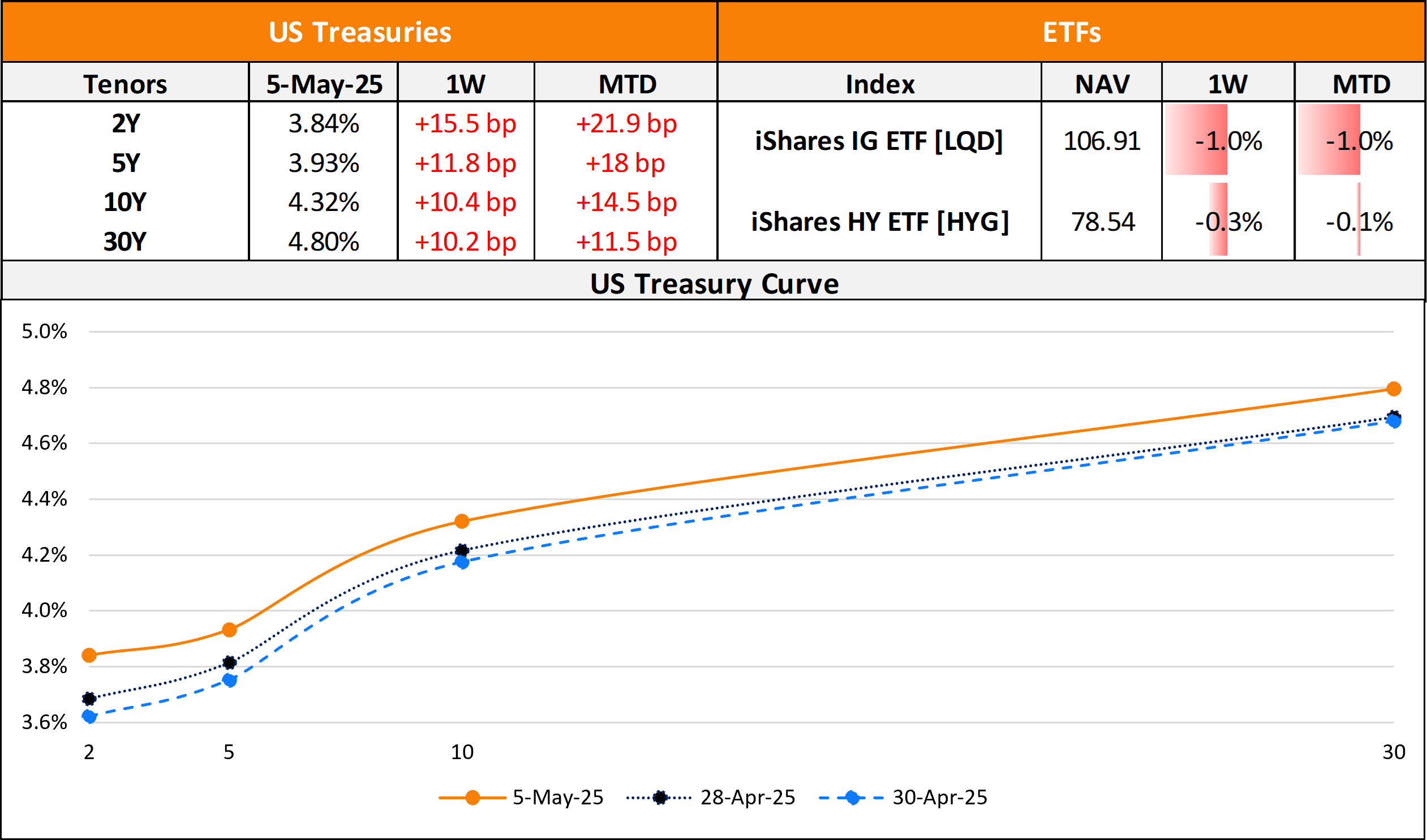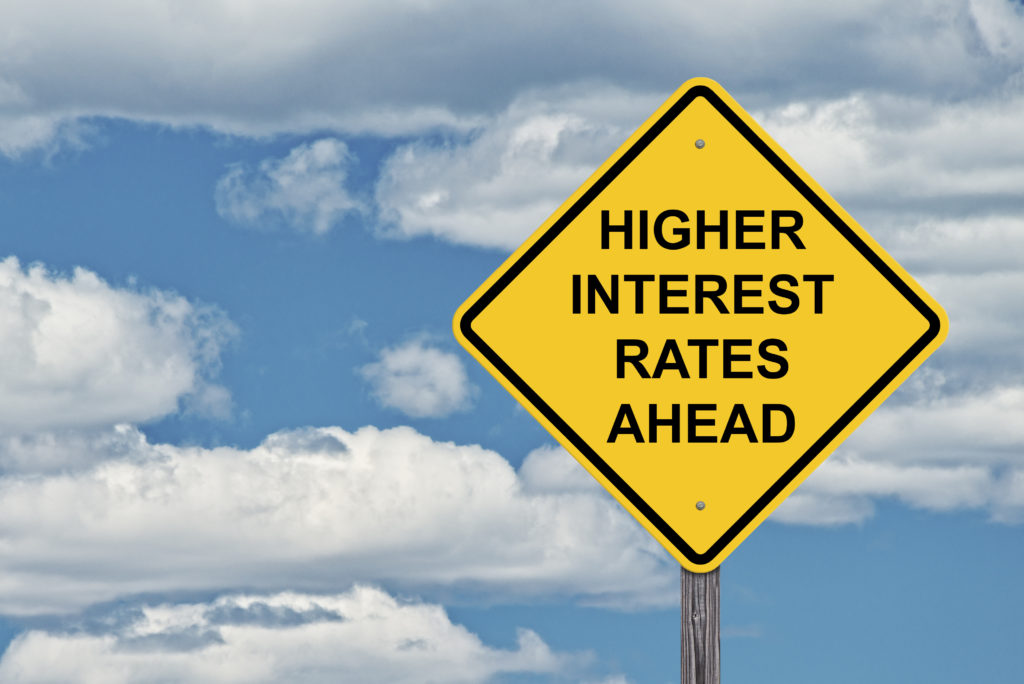This site uses cookies to provide you with a great user experience. By using BondbloX, you accept our use of cookies.
Bond Market News
The Week That Was (28 April – 04 May, 2025)
May 5, 2025

US primary market issuances jumped to $31bn vs. $27.5bn in the previous week. IG issuers took up most of the issuances at $29.4bn, led by Alphabet’s $5bn four-trancher and Citi’s $4.35bn two-part issuance. HY issuances stood at $1.4bn, led by PennyMac’s $850mn issuance and Jefferson Capital’s $500mn deal. In North America, there were a total of 32 upgrades and 33 downgrades each, across the three major rating agencies last week. US IG funds saw $1.5bn in outflows during the week ended April 30, adding to the $1.1bn outflow seen during the week before that. US HY bond funds saw investors pull-out a net $2.6bn, extending the previous week’s outflows of $1.6bn.
EU Corporate G3 issuances rose to $34.1bn vs. $15.3bn in the prior week. KfW’s $5bn deal led the tables, followed by BNP Paribas raising €2.75bn and $2.85bn via two-part issuances through the week. The region saw 21 upgrades and 28 downgrades each, across the three major rating agencies. The GCC dollar primary bond market saw $10.1bn in new issuances last week as compared to $1bn the week prior, with Bahrain’s $1.75bn sukuk leading the tables, followed by DPW and Adnoc Murban raising $1.5bn each. In the Middle East/Africa region, there were 2 upgrades and 3 downgrades across the major rating agencies. LatAm saw $3.1bn in new issuances last week, compared ~$1.4bn in the week prior, with Orbia raising $650mn, followed by $500mn issuances each from Coca-Cola Femsa, Celulosa Arauco and BNCE Bank. The South American region saw 1 upgrade and 2 downgrades each across the three major rating agencies last week.
G3 issuances from the APAC ex-Japan rose to $4.3bn vs. $1.8bn in the prior week. This was led by ST Engineering’s $750mn deal, followed by ASB Bank and AusNet Services’ $500mn issuances each. In the APAC region, there were 3 upgrades and 27 downgrades across the three rating agencies last week with most of the downgrades coming from Moody’s on Thailand corporates after its outlook revision to ‘negative’ from ‘stable’.

Go back to Latest bond Market News
Related Posts:








